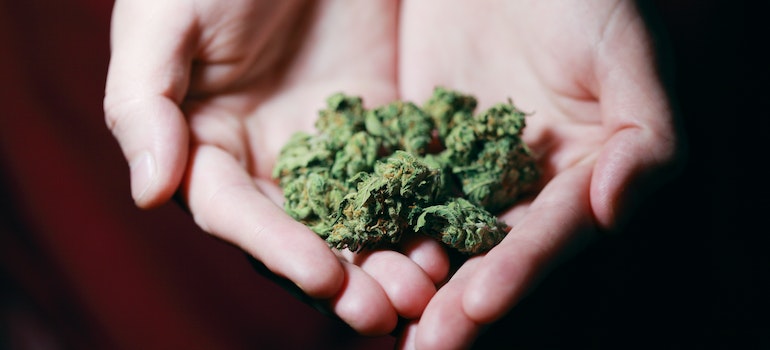Understanding the challenges we face is vital. In the case of addiction, it is particularly true. That is why Harmony Ridge Recovery Center WV will explore the most common addictions in West Virginia. We will help you understand what you are fighting against and offer you a way to get back on the right track.
What are the 5 most common types of addiction?
It’s crucial to be informed about the addictions that plague communities, as knowledge can be the first step to finding solutions. In West Virginia, five addictions stand out:
- Opioids: Opioids, known for their pain-relieving properties, have taken a stronghold in many lives. With the rise of prescription abuse and the urgent need for opioid and opiate rehab centers in WV, it’s clear that the opioid crisis requires our attention.
- Sedatives: The rise of prescription medication abuse is evident here, too, as drugs like Ambien, used to treat insomnia, also cause severe addiction. That is why the need for places like WV Ambien rehab also increases.
- Methamphetamine: This potent stimulant, often called the ‘boot drug,’ has seen a surge in users. Its impact is devastating, tearing families apart.
- Alcohol: While alcohol is legal and commonly consumed, its misuse can lead to severe addiction. Especially alarming is the rise of alcoholism among seniors in West Virginia, showing that this isn’t just a young person’s problem.
- Tobacco: Despite the known health risks, tobacco addiction remains strong. The craving is real and persistent, whether it’s cigarettes, cigars, or chewing tobacco.
- Gambling: Many overlook gambling, but its addictive nature can lead to significant financial and emotional distress. Without proper checks, a fun pastime can spiral into a life-altering problem.

What is the most common drug in West Virginia?
Methamphetamine, often simply called ‘meth,’ has established itself as West Virginia’s most widely used drug. But why has it surged ahead of the rest?
There are a few reasons:
- Affordability: Meth is often cheaper than many other drugs, making it more accessible.
- Availability: It’s easily produced, leading to a larger supply in local communities.
- Potency: Meth’s intense and immediate high can entice users to seek a powerful escape.
With the rise of meth use, there’s also been a significant push toward recovery. Facilities dedicated to meth rehab in West Virginia have been working tirelessly to help affected individuals. As alarming as the dominance of methamphetamine in West Virginia may be, it’s comforting to know that dedicated resources and methods are available to support those looking to break free from its grip.

What is the boot drug in West Virginia?
West Virginia is rich in culture, natural beauty, and history. However, like many places, WV is struggling with addiction, especially with the rise of certain substances. One such substance, colloquially known as the ‘boot drug,’ is making headlines.
The ‘boot drug’ is no other than methamphetamine. Its addictive nature and the ease of production have made it a prominent issue in West Virginia. Initially, this substance lures users with the promise of heightened energy and euphoria. However, many don’t realize when recreational drug use turns into addiction. The line is thin and often crossed without conscious awareness.
Effects on Individuals and Families
The grip of methamphetamine isn’t limited to the individual user. In truth, families, too, bear the brunt. Emotional distance, financial strain, and trust issues frequently arise. With meth in the picture, household dynamics shift, often leading to broken homes and strained relationships.
Law Enforcement and Treatment Efforts
In response to the methamphetamine crisis, law enforcement in West Virginia has ramped up its efforts. Increased patrols, stricter regulations, and more frequent raids are all part of the strategy. Parallelly, treatment centers are working diligently to provide recovery resources and support for those seeking a way out.
Does West Virginia have an opioid problem?
Opioids, whether prescription or illicit, have steadily permeated the lives of many in West Virginia. The data offers a concerning insight: in 2020 alone, West Virginia witnessed over 1,275 tragic deaths from opioid overdoses. When placed against the state’s overall population, this number takes on an even grimmer significance.
Alarmingly, many have been introduced to opioids through legal channels. A staggering 18% of West Virginians received an opioid prescription in 2019, showcasing the potential gateway to misuse.
At the same time, beyond traditional opioids, fentanyl, a synthetic variant, poses an intensified danger. Its high potency and lethal potential are alarming, leading to a surge in specialized fentanyl rehab centers to address this unique challenge.
Community Impact and the government response to the opioid crisis
The repercussions of opioid misuse stretch beyond individual suffering. Entire communities face the fallout, witnessing increased crime rates, surging unemployment figures, and fragmented family structures.
In response to the escalating crisis, West Virginia’s government has been proactive.
- The Opioid Response Plan: Initiated in 2018, this strategy aims to curb opioid prescriptions, amplify educational efforts around opioid dangers, and broaden the scope of accessible treatments.
- Help4WV: This helpline and resource hub is crucial in linking residents to recovery outlets, whether they are struggling with opioid addiction or need treatment for sedative abuse, such as barbiturates rehab in WV.

Alcohol abuse: One of the most common addictions in West Virginia
Among the most common addictions in West Virginia, alcohol holds a unique place. Often seen as a social lubricant, its dark side can be overlooked. West Virginia, like many states, grapples with alcohol addiction. But just how deep-rooted is this issue?
In recent years, West Virginia has seen an uptick in alcohol consumption. According to the most recent data, around 58% of adults in the state admitted to consuming alcohol in the past month. While this may seem like just a statistic, the implications are vast. Among these drinkers, a dangerous segment is emerging: the high-functioning addict. These individuals, often unnoticed, manage daily responsibilities while battling addiction, making the issue even more complex.
The DUI concern
Driving under the influence is a tangible manifestation of alcohol addiction’s dangers. In 2021, West Virginia reported approximately 5,000 DUI incidents. This number isn’t just a reflection of recklessness but emphasizes the broader problem of alcohol dependency. When individuals choose to drive under the influence, it signals a deeper disregard for personal and public safety fueled by addiction.

Understanding Tobacco Addiction in West Virginia
Among the addictions that affect communities, tobacco addiction is an age-old concern. While perhaps not as sensationalized as other substances, its impact is widespread and deeply rooted.
Unlike hard drugs, tobacco sneaks into lives without drama. It’s in breaks at work, social outings, or a means to destress. But beneath these seemingly harmless instances lies a persistent and powerful addiction.
Tobacco Health Implications
Tobacco consumption, primarily through smoking, leads to many health issues, such as:
- Respiratory problems
- Cardiovascular diseases
- Increased risk of cancers
Also, passive smokers, especially children, are unintentionally exposed to these health risks, making the issue even more pressing.
Economic Impact of Smoking
The financial burden of tobacco addiction isn’t just about buying packs of cigarettes. It extends to healthcare costs for treating tobacco-related diseases and lost productivity at work. For a state like West Virginia, these costs can strain already tight budgets and resources.

Gambling among the most common addictions in West Virginia
Amidst the many forms of addiction, gambling presents a unique face. Often veiled under the guise of entertainment or a potential windfall, its true impact can be elusive. Like many states, West Virginia wrestles with the implications of gambling addiction.
The Thrill and the Trap of Gambling
Gambling starts as a thrilling pursuit for many. The anticipation of a big win, the adrenaline rush, and the atmosphere of casinos or betting spots can be alluring. Yet, this thrill often hides the trap of addiction that ensnares many.
The consequences of gambling addiction are multifaceted:
- Financial Strain: Beyond the obvious monetary losses, chronic gambling can lead to debt, bankruptcy, and strained family budgets.
- Emotional and Psychological Impact: The rollercoaster of wins and losses can foster stress, depression, and anxiety. The constant pursuit of the “next big win” can cloud judgment and exacerbate the addiction.
- Relationship Fallout: Trust issues, ongoing conflicts over money, and the secrecy surrounding gambling habits can strain or sever relationships.

Less common substance addictions in West Virginia
While certain substances dominate as the most common addictions in West Virginia, it’s important to shed light on less common addictions that still affect individuals in West Virginia. These may not make headlines, but their impact is real and significant.
While these less common substance addictions may not garner as much attention, they demand our understanding and support. Many individuals affected by heroin addiction, for instance, seek help and rehabilitation services at WV heroin rehab to regain control of their lives.
It’s crucial to recognize that addiction takes various forms, and each deserves our attention and empathy. By acknowledging these less common substance addictions, we can better address the diverse needs of those struggling with dependency in West Virginia.
Cocaine: A Quiet Concern
Cocaine, though not as rampant as meth or opioids, remains a concern. In West Virginia, an estimated 2.3% of young adults reported using cocaine in the past month, according to the Substance Abuse and Mental Health Services Administration (SAMHSA). The need for specialized WV heroin rehab facilities has also emerged, as heroin is often used with cocaine.
Marijuana: A Complex Debate
Marijuana, while gaining acceptance in some areas, is not without its problems. SAMHSA states approximately 8.1% of West Virginians reported using marijuana in the past month. That raises concerns about its effects on individuals and potential gateway implications.
Prescription Drugs
Prescription medications, like benzodiazepines and barbiturates, are a less-discussed but significant issue. According to SAMHSA, 3.8% of West Virginians misused prescription pain relievers in the past year, and 1.2% misused tranquilizers during the same period. As a result, the demand for prescription drug rehab in WV has grown.

The factors behind most common addictions in West Virginia
In West Virginia, several factors contribute to the prevalence of addiction, and exploring them can shed light on the bigger picture.
Socioeconomic Factors
Poverty, lack of access to quality healthcare, and limited educational opportunities can create an environment where addiction thrives. Individuals facing these challenges may turn to substances as a coping mechanism.
Accessibility of Substances
Easy access to drugs and alcohol, whether through prescription medications, illicit markets, or even social circles, increases the likelihood of addiction. When substances are readily available, the temptation to use and misuse is higher.
Lack of Education and Awareness
Inadequate knowledge about the risks and consequences of addiction can leave individuals vulnerable. Raising awareness about substance abuse, its impact, and available resources is essential in prevention and early intervention.
Non-profit organizations and community programs fighting the most common addictions in West Virginia
Non-profit organizations and community-driven initiatives are on the frontline, providing crucial support and awareness. These entities:
- Offer support groups: Local support groups, like SMART Recovery, provide a sense of community for those in recovery.
- Raise awareness: Programs such as the West Virginia Bureau for Behavioral Health and Health Facilities educate communities about the dangers of addiction.
- Provide resources: Organizations like the Partnership for Prescription Assistance connect individuals with prescription drug assistance programs.
Educational Campaigns and Prevention Strategies
Education is key to prevention. West Virginia employs various strategies:
- School Programs: Implementing substance abuse prevention programs in schools to educate and empower students.
- Awareness Campaigns: Launching campaigns that highlight the risks of addiction and available resources.
- Telehealth Services: Expanding telehealth services to make addiction treatment more accessible in remote areas.

West Virginia’s Battle Against the Most Common Addictions
Our exploration of the most common addictions in West Virginia has unveiled the stark realities and challenges individuals and communities face. From opioids and alcohol to methamphetamine, tobacco, and gambling, the state grapples with a range of addictive substances. Socioeconomic factors, substance accessibility, and awareness gaps contribute to these issues. Fortunately, West Virginia is taking proactive steps to combat addiction with government initiatives, community programs, and educational campaigns. By addressing the root causes and providing support, the state is working toward a brighter, addiction-free future.



